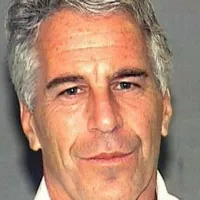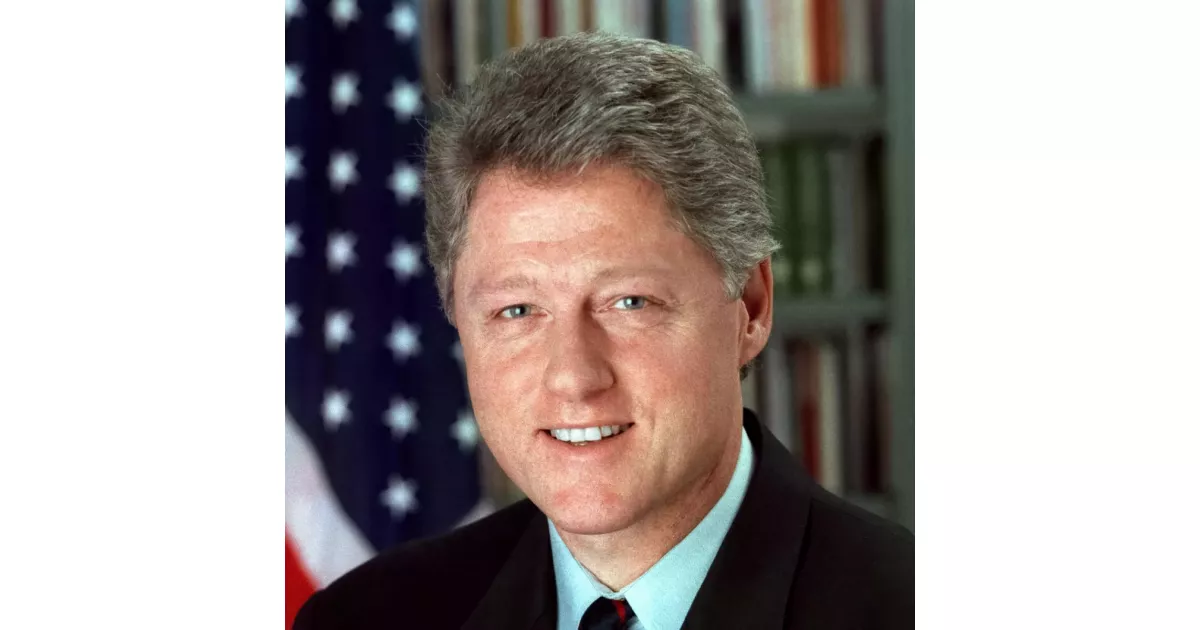Public opinion and media debates around Bill Clinton—discover key moments of controversy.
Bill Clinton, the 42nd U.S. President (1993-2001), served as Arkansas's Attorney General (1977-1979) and Governor (1979-1981, 1983-1992). A Democrat, his "Third Way" centrism, dubbed Clintonism, shaped his presidency. Key achievements include economic prosperity, NAFTA, and welfare reform. He faced impeachment proceedings related to his affair with Monica Lewinsky, but was acquitted. His presidency is viewed as a period of relative peace and economic growth, though marked by political polarization and scandal.
1978: Alleged Rape by Clinton
In the spring of 1978, Juanita Broaddrick alleged that Bill Clinton had raped her. She claimed to have told witnesses about the incident around the time it allegedly occurred.
1980: Unpopular motor vehicle tax and Cuban refugees
In 1980, Bill Clinton's term as Governor of Arkansas was marked by an unpopular motor vehicle tax and public anger over the escape of Cuban refugees detained in Fort Chaffee. Monroe Schwarzlose polled 31 percent of the vote against Clinton in the Democratic gubernatorial primary. These events contributed to his defeat in the general election that year.
1985: Half-brother sentenced for cocaine possession
In 1985, Bill Clinton's half-brother, Roger, was sentenced to prison for possession and smuggling of cocaine, but was later pardoned by his brother after serving his sentence.
1987: Killing of Don Henry and Kevin Ives
The killing of Don Henry and Kevin Ives in 1987 started various conspiracy theories that accused Bill Clinton and the Arkansas state authorities of covering up the crime.
1991: Alleged Unwanted Advances towards Paula Jones
In 1991, Bill Clinton allegedly made unwanted advances towards Paula Jones; Clinton denied the allegations.
1992: Capital punishment stance
By 1992, Bill Clinton was insisting that Democrats "should no longer feel guilty about protecting the innocent". During his final term as governor, Arkansas performed its first executions since 1964.
1992: Draft Controversy During Campaign
During the 1992 campaign, Bill Clinton's draft record and attempts to avoid service in Vietnam were criticized. His campaign manager successfully argued for the release of Clinton's letter declining ROTC.
1992: Draft Controversy
During the 1992 presidential campaign, Colonel Eugene Holmes stated that he suspected Bill Clinton attempted to manipulate the situation to avoid the draft.
April 19, 1993: FBI raid on Branch Davidian community
On April 19, 1993, Attorney General Janet Reno authorized the FBI to use armored vehicles and tear gas on the Branch Davidian community near Waco, Texas. The operation led to a fire that killed 75 residents, including 24 children, in an attempt to end a 51-day siege.
May 19, 1993: Firing of White House Travel Office Employees
On May 19, 1993, Clinton fired seven employees of the White House Travel Office, leading to the White House travel office controversy.
September 22, 1993: Clinton's health care reform speech to Congress
On September 22, 1993, President Clinton delivered a major speech to Congress outlining a health care reform plan aimed at achieving universal coverage. The plan, led by Hillary Clinton, faced strong opposition and ultimately failed despite a Democratic majority in Congress.
November 1993: David Hale Alleges Clinton Pressured Him to Provide Illegal Loan
In November 1993, David Hale alleged that while Bill Clinton was Governor of Arkansas, Clinton pressured Hale to provide an illegal $300,000 loan to Susan McDougal, the Clintons' partner in the Whitewater land deal, leading to a U.S. Securities and Exchange Commission investigation.
1993: Kathleen Willey's Allegation
In 1993, Kathleen Willey alleged that Bill Clinton had groped her in a hallway. Later, an independent counsel determined that Willey had provided "false information" to the FBI.
1993: Battle of Mogadishu
In 1993, during the Battle of Mogadishu in Somalia, two U.S. helicopters were shot down, resulting in the deaths of 18 American soldiers and prompting a drop in support for American intervention.
April 1994: Genocide in Rwanda
In April 1994, genocide broke out in Rwanda, and Clinton chose not to intervene, fearing a reprisal of the events in Somalia the previous year. Clinton later called this failure one of his main foreign policy failings.
September 1994: Signing of the Omnibus Crime Bill
In September 1994, President Clinton signed the Omnibus Crime Bill into law. The bill expanded the death penalty to include crimes not resulting in death, such as running a large-scale drug enterprise, and included a subsection of assault weapons ban for a ten-year period.
1994: Paula Jones' sexual harassment lawsuit initiated
In 1994, Paula Jones initiated a sexual harassment lawsuit against Clinton, claiming he had made unwanted advances towards her in 1991; Clinton denied the allegations.
June 1996: White House FBI Files Controversy Arises
In June 1996, the White House FBI files controversy arose concerning improper access by the White House to FBI security-clearance documents.
September 21, 1996: Signing of the Defense of Marriage Act
On September 21, 1996, President Clinton signed the Defense of Marriage Act (DOMA) into law. DOMA defined marriage for federal purposes as the legal union of one man and one woman, and it allowed individual states to refuse to recognize gay marriages performed in other states. The signing was considered a political decision during a re-election year.
September 30, 1996: Signing of the Illegal Immigration Reform and Immigrant Responsibility Act
On September 30, 1996, as part of an initiative to curb illegal immigration, President Clinton signed the Illegal Immigration Reform and Immigrant Responsibility Act (IIRIRA). The U.S. Commission on Immigration Reform, appointed by Clinton, recommended reducing legal immigration from about 800,000 people a year to about 550,000.
1996: Chinese Contributions to Clinton's Reelection Campaign
In 1996, it was discovered that several Chinese foreigners made contributions to Bill Clinton's reelection campaign and the Democratic National Committee with the backing of the People's Republic of China, violating United States law.
February 1997: Donors Staying at the White House
In February 1997, it was discovered that 938 people had stayed at the White House and that 821 of them had made donations to the Democratic Party and got the opportunity to stay in the Lincoln bedroom as a result of the donations.
March 19, 1998: Julie Hiatt Steele Accusation
On March 19, 1998, Julie Hiatt Steele, a friend of Kathleen Willey, released an affidavit accusing Willey of asking her to lie and corroborate Willey's account of being sexually groped by Clinton in the Oval Office.
April 1998: Dismissal of Paula Jones' Lawsuit
In April 1998, Paula Jones' sexual harassment lawsuit against Clinton was initially dismissed by Judge Susan Webber Wright on the grounds that it lacked legal merit.
August 1998: Cruise Missile Strikes on Terrorist Targets
In August 1998, Bill Clinton ordered cruise missile strikes on terrorist targets in Afghanistan and Sudan, specifically targeting the Al-Shifa pharmaceutical factory in Sudan, suspected of assisting bin Laden in making chemical weapons, and bin Laden's terrorist training camps in Afghanistan. The Al-Shifa factory was destroyed, resulting in casualties and a medicine shortage in Sudan.
August 1998: Admission of Affair with Monica Lewinsky
In August 1998, Clinton admitted to having an affair with Monica Lewinsky, which impacted the Paula Jones lawsuit.
October 1998: Tentative Settlement Offer in Paula Jones Case
In October 1998, Clinton's attorneys tentatively offered $700,000 to settle the Paula Jones case, close to the $800,000 sought by Jones' lawyers.
December 1998: House Begins Impeachment Hearings
In December 1998, the House of Representatives began impeachment hearings against Bill Clinton after the Starr Report was submitted, alleging acts that might constitute grounds for impeachment.
December 19, 1998: Clinton Impeached by the House of Representatives
On December 19, 1998, Bill Clinton was impeached by the House of Representatives for perjury and obstruction of justice related to his relationship with Monica Lewinsky.
1998: Juanita Broaddrick's Allegation
In 1998, Juanita Broaddrick alleged that Bill Clinton had raped her in the spring of 1978. She claimed to have told witnesses about the rape in 1978 and later detailed the alleged rape in an NBC interview.
1998: Impeachment Proceedings
In 1998, during his impeachment proceedings, Clinton's job approval rating reached its highest point.
1998: The Lewinsky Scandal's Enduring Impact
In 1998, the Lewinsky scandal impacted Clinton's legacy, leading to his impeachment and later reassessments of the affair as an abuse of power in light of the #MeToo movement.
1998: Clinton Warns Congress About Saddam Hussein's Weapons
In Bill Clinton's 1998 State of the Union Address, he warned Congress that Iraqi dictator Saddam Hussein was building an arsenal of chemical, biological and nuclear weapons, although there was no evidence for that claim.
1998: Clinton-Lewinsky Scandal Unveiled
In early 1998, the Clinton-Lewinsky scandal was revealed, exposing an affair between President Clinton and White House intern Monica Lewinsky.
January 1999: Impeachment Trial in the Senate
In January 1999, Bill Clinton's impeachment trial began in the Senate.
February 12, 1999: Senate Acquits Clinton of Impeachment Charges
On February 12, 1999, the Senate acquitted Bill Clinton of both perjury and obstruction of justice charges, failing to reach the two-thirds majority required for conviction and removal from office.
March 24, 1999: Start of NATO Bombing Campaign
On March 24, 1999, Bill Clinton authorized the use of U.S. Armed Forces in a NATO bombing campaign against Yugoslavia, named Operation Allied Force, due to human rights concerns.
May 1999: American Bombing of Chinese Embassy
In May 1999, relations were damaged briefly by the American bombing of the Chinese embassy in Belgrade. Clinton apologized for the bombing, stating it was accidental.
June 10, 1999: End of NATO Bombing Campaign
On June 10, 1999, the NATO bombing campaign against Yugoslavia, authorized by Bill Clinton, ended with United Nations Security Council Resolution 1244. The resolution placed Kosovo under UN administration and authorized a peacekeeping force to be deployed to the region.
1999: Impeachment Proceedings
In 1999, during his impeachment proceedings, Clinton's job approval rating reached its highest point.
March 2000: Independent Counsel Finds No Crime in FBI Files Controversy
In March 2000, Independent Counsel Robert Ray determined there was no credible evidence of any crime related to the White House FBI files controversy.
January 19, 2001: Clinton's Law License Suspended
On January 19, 2001, Bill Clinton's law license was suspended for five years after he acknowledged conduct prejudicial to the administration of justice in the Jones case.
January 20, 2001: Clinton Issues Pardons on Last Day in Office
On January 20, 2001, Bill Clinton issued 141 pardons and 36 commutations on his last day in office, leading to controversy surrounding Marc Rich and allegations of payments for influencing pardon decisions.
2018: Clinton on Resignation
In 2018, Bill Clinton addressed questions in several interviews about whether he should have resigned during the Lewinsky scandal, stating he believed he made the right decision in not resigning.
2018: Revisiting Sexual Misconduct Allegations
In 2018, in light of the #MeToo movement, allegations of sexual misconduct against Clinton were revisited and lent more credence.
Mentioned in this timeline

Barack Obama the th U S President - was the...

Martin Luther King Jr was a pivotal leader in the...

Hillary Diane Rodham Clinton is a prominent American politician lawyer...

John F Kennedy JFK was the th U S President...

George W Bush the rd U S President - is...

Jeffrey Epstein was an American financier and convicted sex offender...
Trending

33 minutes ago Svitolina advances to face Bencic in Dubai after Badosa retires from match.

2 hours ago Khachanov Advances in Doha, Survives Mochizuki Challenge: Qatar ExxonMobil Open 2026

2 hours ago Stephen A. Smith Criticizes Ben Simmons; Promises More Criticism on First Take.
2 hours ago High Court hears appeal regarding Quran burning conviction; CPS insists it's disorder.

2 hours ago Shadab Khan's bold 'Till Final' claim backfires after Pakistan's defeat against India.

3 hours ago Storm Causes Power Outages Across Central Coast and SLO County, Bringing Down Trees
Popular

Jesse Jackson is an American civil rights activist politician and...
Randall Adam Fine is an American politician a Republican who...

Pam Bondi is an American attorney lobbyist and politician currently...

Barack Obama the th U S President - was the...

Kid Rock born Robert James Ritchie is an American musician...

XXXTentacion born Jahseh Dwayne Ricardo Onfroy was a controversial yet...
